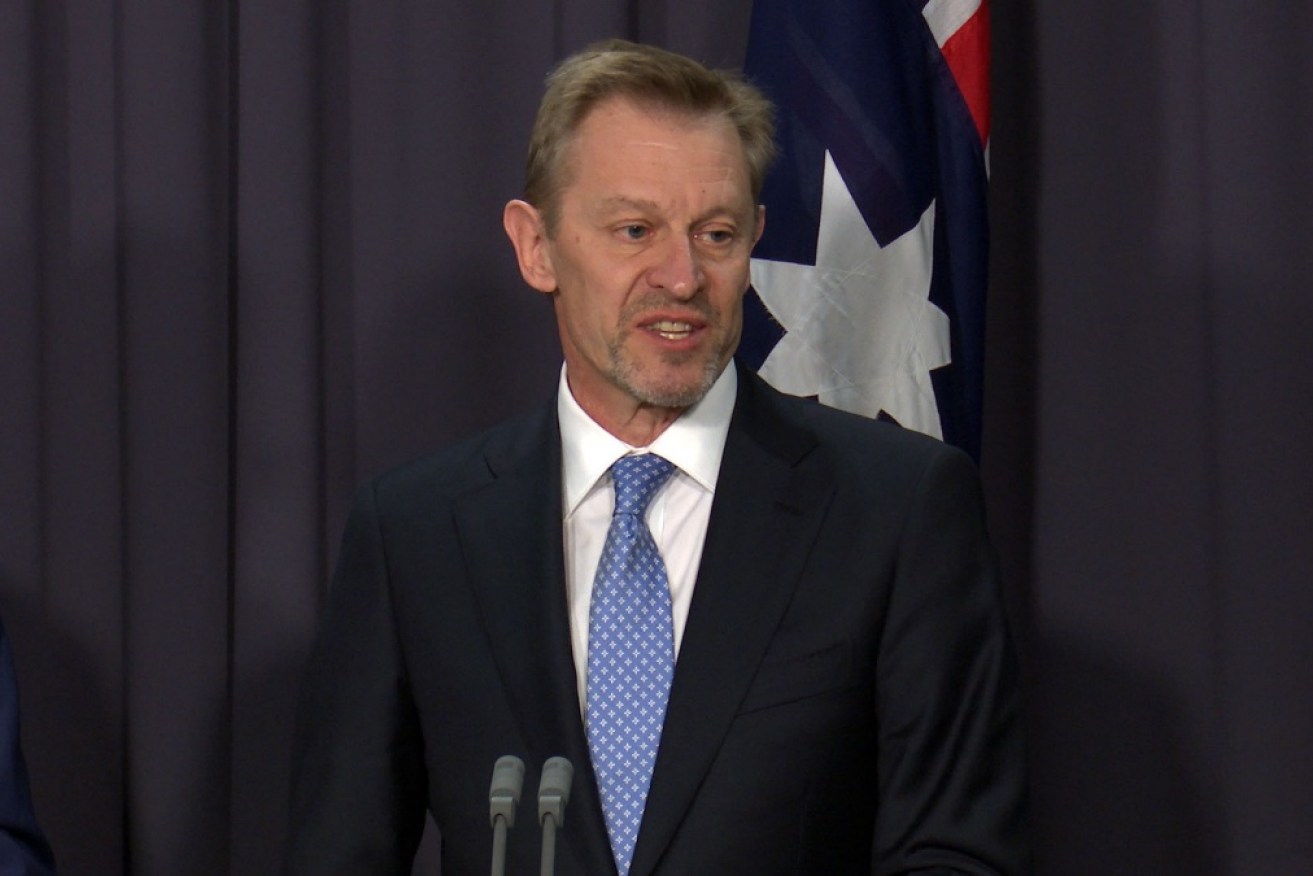Big on savings, small on security. How Census fail was inevitable


Fingers are increasingly pointing at ABS boss David Kalisch over the Census failure. Photo: AAP
Australian Bureau of Statistics boss David Kalisch was on a mission to save money with the 2016 Census, but now he is battling to save his own job.
During a recent Senate Estimates hearing, Mr Kalisch boasted of aiming to find a 25 per cent saving on the cost of conducting the Census by making it an online survey.
“We expect to save just over a hundred million dollars from approaching this digital first Census,” he told the committee.
“Undertaking a Census is very expensive, so I think last time it cost the bureau in excess of $450 million to mount the Census.”
In a further embarrassment for the ABS, data on government contracts show the bureau spent almost $100,000 more on pot plants last year than it did on testing the Census website.
This week, an unwanted impact of making those efficiencies was felt as millions of Australians were shut out of the Census when the system comprehensively failed.
https://twitter.com/mramclaren/status/763596735507599360
The ABS is also fending off claims that in a bid to find more savings, it and service provider IBM, turned down measures that would have easily deflected the attacks that targeted the Census site.
Mr Kalisch, who earns $705,000 a year, is now under pressure to resign after steering the cost-cutting exercise that led to a massive embarrassment for the government.
And while Census 2016 is working again, an angry Prime Minister has suggested that indeed some bosses at the Australian Bureau of Statistics might not be for much longer.
Easily preventable
Internet security journalist Patrick Gray has gone public with astonishing claims that not only was the online incursion of the Census site preventable, but that there was no real need to shut the site down and the only attacks were minor ones from inside Australia.
So here's a screengrab of my #CensusFail post that you barbarians are all trying to download. pic.twitter.com/XU04S91oyE
— Patrick Gray (@riskybusiness) August 11, 2016
Mr Gray later repeated his assertions on Channel Ten’s The Project. (See below).
After a 43-hour outage, the Census site was up again at 2:30pm on Thursday, but not before Malcolm Turnbull promised heads would roll at the ABS over the meltdown on Census night.
The Opposition, however, has demanded the Prime Minister should himself take responsibility for the embarrassing failure.
At 5:15pm on Thursday, Mr Kalisch apologised for the Census failure that prevented millions of Australians from successfully submitting their information and which sparked massive concerns over the security of data received.
He and Census boss Duncan Young made a joint media statement, saying all was back on track and urged Australians to complete the Census.
The pair would not take questions.
So many people to blame
Earlier in the day, Mr Turnbull again insisted personal data was not compromised because of the meltdown.
But he also expressed his displeasure with the ABS.

The PM says heads will roll over the Census fail. Photo: AAP
“I too am angry about this. I am very disappointed about this. This has clearly been a failure on the part of the ABS, absolutely,” Mr Turnbull said while insisting a thorough review would uncover the fault behind the breakdown.
“There are clearly very big issues for IBM, the systems provider for the Census, and for the Australian Bureau of Statistics itself.
“Which heads roll where and when will be determined once the review is complete.”
Opposition Leader Bill Shorten said Mr Turnbull should stop blaming others for the failures of his government.
Those sentiments were echoed by a number of Mr Shorten’s frontbenchers throughout the day.
Independent MP Andrew Wilkie pointed the finger at Mr Kalisch, but also the Census Minister Michael McCormack, saying both should be sacked.
But Australian National University politics lecturer Andrew Hughes says the Census debacle has damaged the government’s brand and weakened the Prime Minister’s standing.
“Malcolm Turnbull is showing case after case that he is a reactionary leader. This is not looking good for him,” Dr Hughes said.
All over for online voting
And when it comes to online federal elections, Dr Hughes says the Census has ensured the push for electronic voting is “gone, dead and buried” for at least another decade.
Just three weeks ago, both sides of politics expressed a desire to quickly move into online elections because of the long wait for results following last month’s federal poll.
“We will have paper voting for quite a few elections to come now, because there needs to be integrity in the system,”
Australian National University politics lecturer Andrew Hughes
“If the Census is anything to go by, that integrity is not there,” Dr Hughes said.
ANU’s acting director of its Centre for Social Research and Methods, Nicholas Biddle, agreed online voting may now be way off because of the Census fiasco.
“It becomes problematic when the online method is the default,” Dr Biddle said.
“That’s what this Census was and it turned out to be problematic. People will use that now as an example of why we shouldn’t have electronic voting.”
Patrick Gray explains what he believes happened on Census night.
We speak to @riskybusiness about exactly what happened during #CensusFail #TheProjectTV https://t.co/lvrys2zEQp
— The Project (@theprojecttv) August 11, 2016
Chris Johnson is a Walkley Award-winning journalist who has spent the past decade working in the Canberra Press Gallery, most recently as the bureau chief for Fairfax Media. He is now a Political Correspondent for The New Daily.








